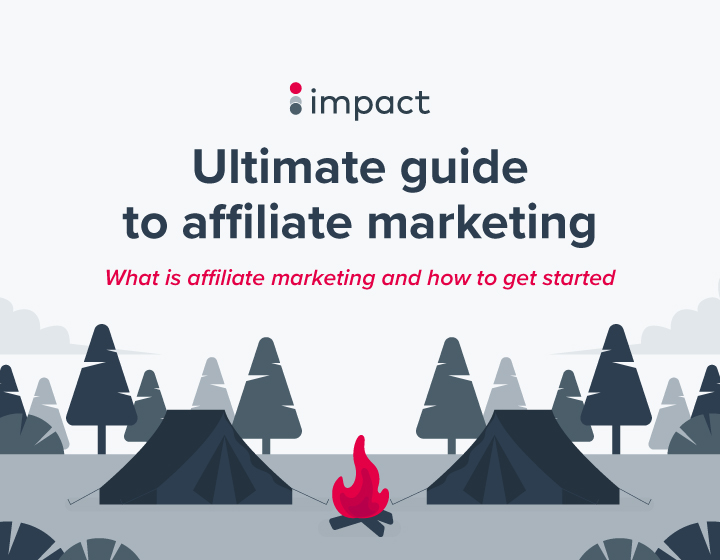Many affiliate markets need updated resources in the face of a rapidly changing industry. Today, mature programs no longer see affiliates as simple marketing puzzle pieces. Instead, they prefer to build and nurture meaningful affiliate partnerships.
To tap into the full potential of this evolving channel, brands and agencies need to keep up with the times.
Guillaume Legond, Lead Partner at Media Group, Dentsu Singapore—one of the world’s largest and most reputable media agencies—shares his thoughts on the affiliate marketing channel’s evolution in Southeast Asia and what it means for brands and advertisers in the future.
Can you tell us more about the history of the affiliate channel? What was it like in the past, who were the users/parties involved, and when was it used?
Guillaume Legond: Affiliate was probably the first digital channel to develop after the emergence of digital/ecommerce sites emerged. Initially, individuals used the affiliate channel to promote products and businesses by themselves. Later, we saw a wave of consolidation when big publishers, networks, and ad-tech partners emerged to clean and expand the ecosystem.
Promoting someone else’s business and taking a cut of the revenue is one of the oldest selling techniques. The internet just allowed us to bring this concept to scale.
What challenges did advertisers face when tapping into the affiliate channel? How can they overcome these challenges to reap the benefits of the channel?
Guillaume: Obviously, when brands saw the potential to scale profits, they started developing different techniques to earn more money. Some of these tactics weren’t above board, and affiliate marketing started gaining a reputation as a channel filled with fraudulent traffic and transactions.
However, we see vast untapped potential for brands. With the right tools and partners, the affiliate channel can quickly become a pillar of your marketing strategy. You need to know who to speak to, what to look for, and what to avoid.
Marketers are used to turning the marketing tap on and off through automated channels like Meta or Google. They’ve forgotten the power of negotiation, investigation, payouts, and pricing strategy—all qualities the affiliate channel offers.
How popular has affiliate marketing in Southeast Asia been in the past? How has it evolved, and what’s it like today?
Guillaume: While the practice has taken root in markets like Australia, the US, and Europe— Southeast Asia is just rediscovering affiliate marketing. It has been there for a while, and everyone knows what it is, but few brands have actually run a program for a sustained period. Fraud and lack of regional capabilities prevented brands from fully harnessing the channel’s potential.
With rising prices in cost per impression (CPM) and cost per click (CPC), and growing competition in traditional digital channels, marketers must find new sources of growth and channels to promote their brands. Today, actors such as impact.com help introduce transparency into the process at scaleable levels.
What main benefits can advertisers expect when using the affiliate channel today?
Guillaume: Firstly, you can remunerate partners based on their performance and how much revenue or leads they bring in. You don’t need to deal with advertising, managing budgets, CPCs, CPMs, targeting, and so on. Because you pay based on performance, you gain free brand visibility when partners promote you and drive traffic to your website.
Secondly, affiliate opens a new avenue for new placements and partnerships that aren’t available in the programmatic space. For example, you might have access to premium placements, such as Electronic Direct Mail (EDM) and in-app pushes.
Finally, the affiliate manager’s network connections play a crucial role in fostering relationships. This allows you to negotiate, craft, and launch tailored packages that are impossible to get anywhere else.
What role does a media agency like Dentsu play in this performance channel?
Guillaume: Affiliate marketing is one of many channels brands and marketers can tap into. An agency should be your trusted partner since it brings in deep knowledge and expertise of the channel, environment, partners, and ecosystem. Moreover, an agency can keep the big picture in mind and assess how to effectively integrate affiliate marketing into the overall brand strategy.
Are there any affiliate trends that you foresee becoming prominent in this region? How should brands and agencies approach these trends?
Guillaume: Influencer marketing will start merging with the “traditional” affiliate practice. Brands don’t want to pay for followers, likes, and views anymore. They want to assess the impact on their sales.
Partners such as impact.com can help brands consolidate affiliate and influencer marketing efforts by providing transparency, centralizing performance and reporting, and providing access to talent in-market.
What advice would you give to brands or agencies that are hesitant to use the affiliate channel regularly?
Guillaume: If done right, affiliate marketing can be your most profitable channel with a double-digit return on average spend (ROAS). Don’t use affiliate marketing as a periodical channel—it always needs to be on. Remember to give it time. The program can take a year or more to mature.
From a business KPI point of view, the affiliate channel can fund itself. Just ensure the overall cost per acquisition (CPA) doesn’t go beyond your revenue. That’s when you can reinvest in the channel to keep it running.
Many marketers find it challenging to fully understand the capabilities of affiliate marketing. Still, it will bring you and your business new perspectives and growth avenues.





